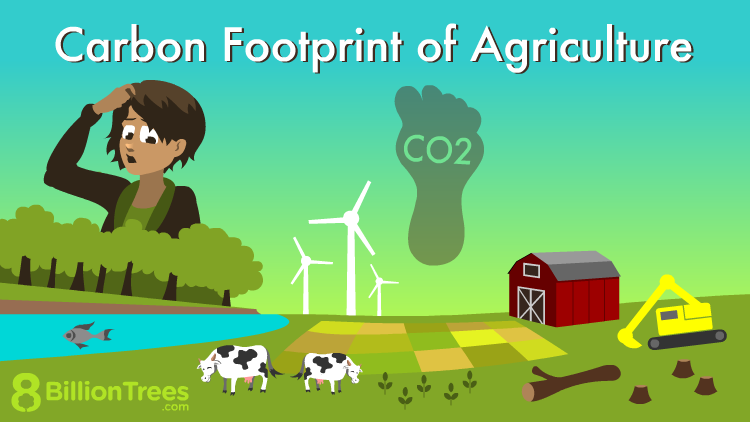
Organic farming and carbon footprint are closely related concepts in the context of sustainable agriculture. Organic farming practices significantly reduce the carbon footprint of food production by focusing on methods that enhance soil health, minimize synthetic inputs, and promote ecological balance. Unlike conventional farming, which often relies on synthetic fertilizers and pesticides that contribute to greenhouse gas emissions, organic farming emphasizes the use of natural compost, green manures, and crop rotation. These practices not only improve soil structure and carbon sequestration but also reduce the need for energy-intensive inputs. By avoiding synthetic chemicals and minimizing soil disturbance, organic farming lowers overall energy consumption and emissions. Additionally, organic methods such as efficient water management and the promotion of biodiversity further contribute to a reduced carbon footprint. Through these sustainable practices, organic farming plays a vital role in mitigating climate change and fostering a more environmentally friendly approach to agriculture.

One of the primary ways organic farming and carbon footprint intersect is through the management of soil health. Organic farming practices, such as the use of compost and green manures, enhance soil organic matter, which plays a crucial role in sequestering carbon. Healthy soils can capture and store carbon dioxide from the atmosphere, reducing the overall carbon footprint of farming activities. Unlike conventional farming, which often relies on synthetic fertilizers that can lead to nitrous oxide emissions, organic farming avoids these chemicals and instead uses natural amendments that contribute to soil carbon storage.
Crop rotation is another organic farming practice that impacts the carbon footprint. By rotating crops, organic farmers reduce the need for synthetic fertilizers and pesticides, which are energy-intensive to produce and apply. Crop rotation also improves soil health and reduces erosion, which can further enhance carbon sequestration. By maintaining diverse plant cover throughout the year, organic farming practices help keep carbon in the soil, which is a key factor in reducing the carbon footprint associated with vegetable production.
In addition to soil management, organic farming and carbon footprint are connected through the use of organic inputs and reduced reliance on fossil fuels. Organic farming methods prioritize natural inputs such as compost, manure, and cover crops, which require less energy to produce compared to synthetic fertilizers and pesticides. This reduction in energy use contributes to a lower carbon footprint. Moreover, organic farming practices often involve reduced tillage, which decreases soil disturbance and can lead to lower fuel consumption. By minimizing the use of machinery and fossil fuels, organic farming further reduces the carbon footprint of agricultural activities.
Natural pest management is another area where organic farming and carbon footprint are linked. Organic farmers use biological controls, such as beneficial insects and plant extracts, to manage pests rather than synthetic pesticides. This approach not only reduces chemical residues in the environment but also lowers the carbon footprint associated with pesticide production and application. By fostering a balanced ecosystem through organic practices, farmers can achieve effective pest control with minimal environmental impact.
Water management practices in organic farming also contribute to reducing the carbon footprint. Organic farms often use techniques like drip irrigation and rainwater harvesting, which are more efficient than conventional irrigation methods. These practices help conserve water and reduce the energy required for water distribution, thus lowering the overall carbon footprint of farming operations. Additionally, organic mulching techniques help retain soil moisture and reduce evaporation, further decreasing the need for water and the associated energy costs.
In summary, the connection between organic farming and carbon footprint is evident through various sustainable practices that collectively reduce greenhouse gas emissions. By focusing on soil health, minimizing synthetic inputs, managing water resources efficiently, and supporting biodiversity, organic farming offers a viable path toward lowering the carbon footprint of agriculture. These practices not only contribute to a more sustainable food system but also help combat climate change by reducing the environmental impact of farming activities. Embracing organic farming methods is a crucial step in creating a greener future and mitigating the effects of global warming.









